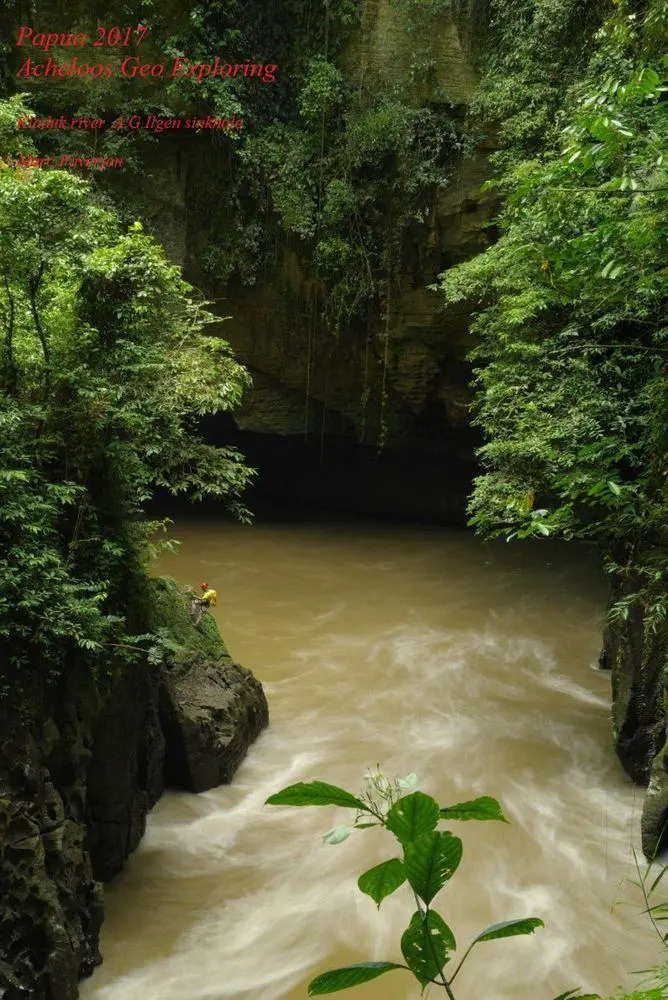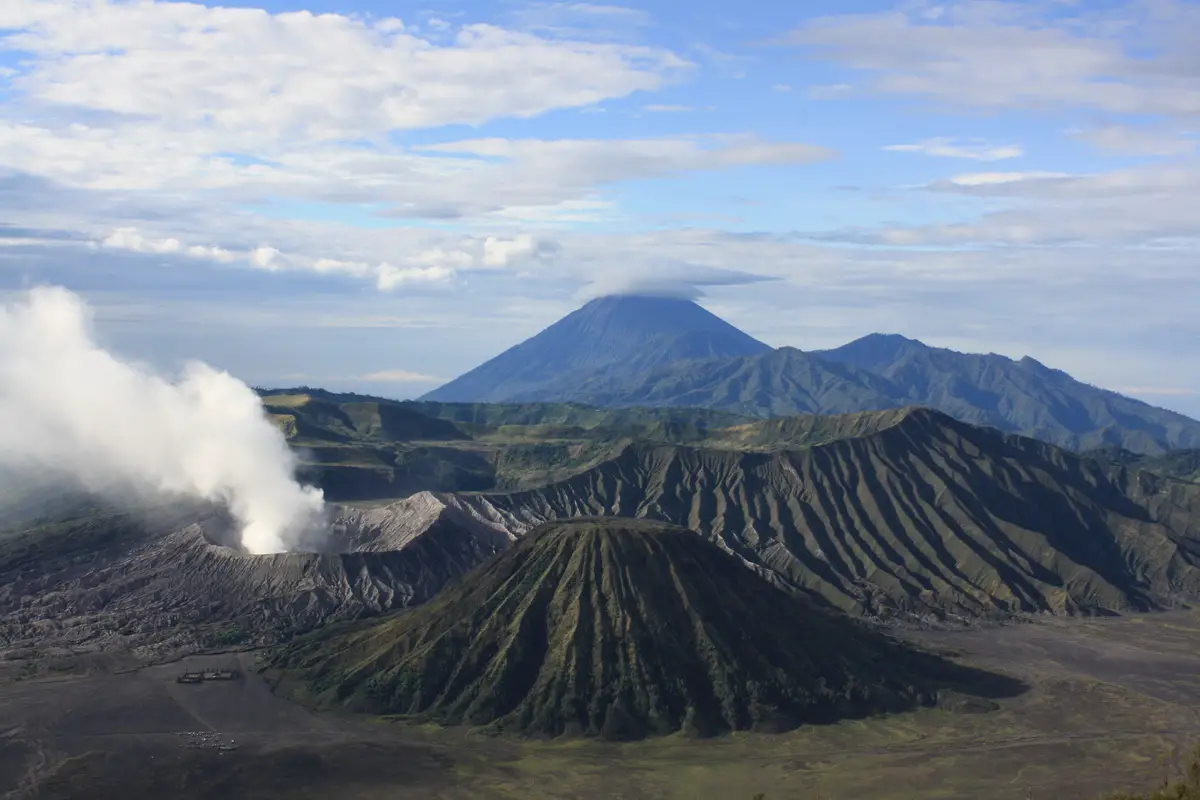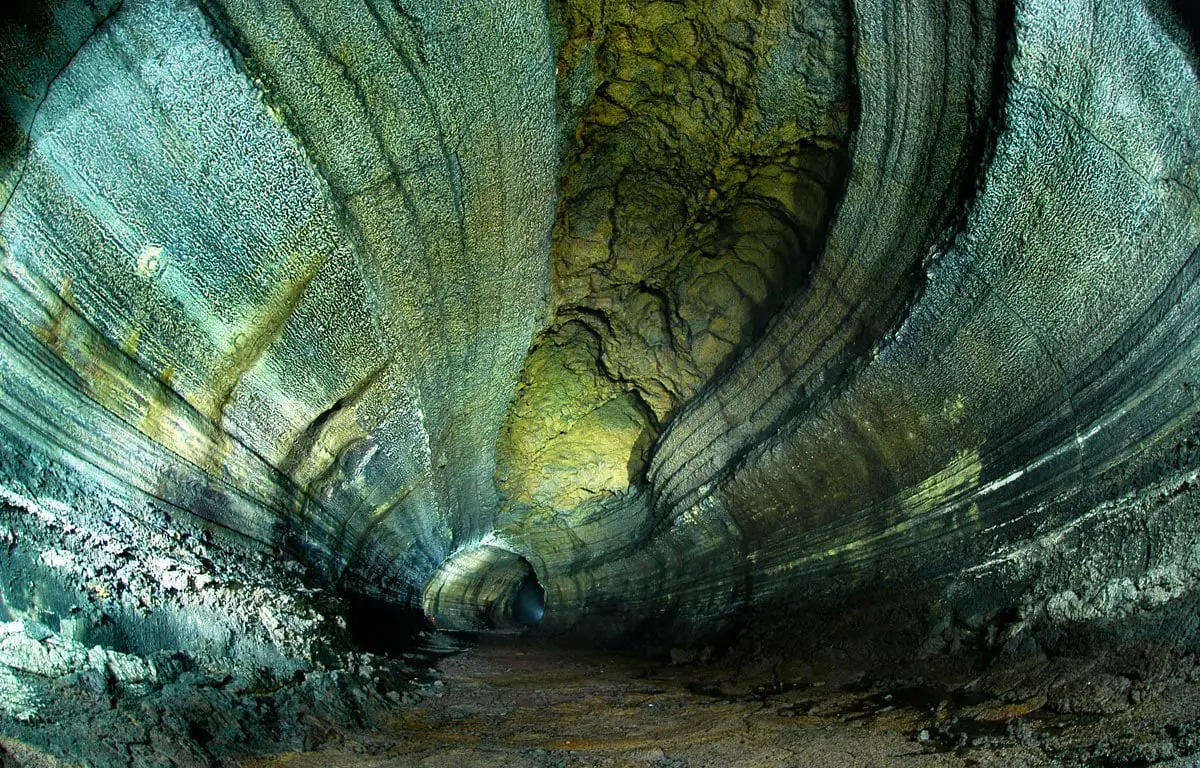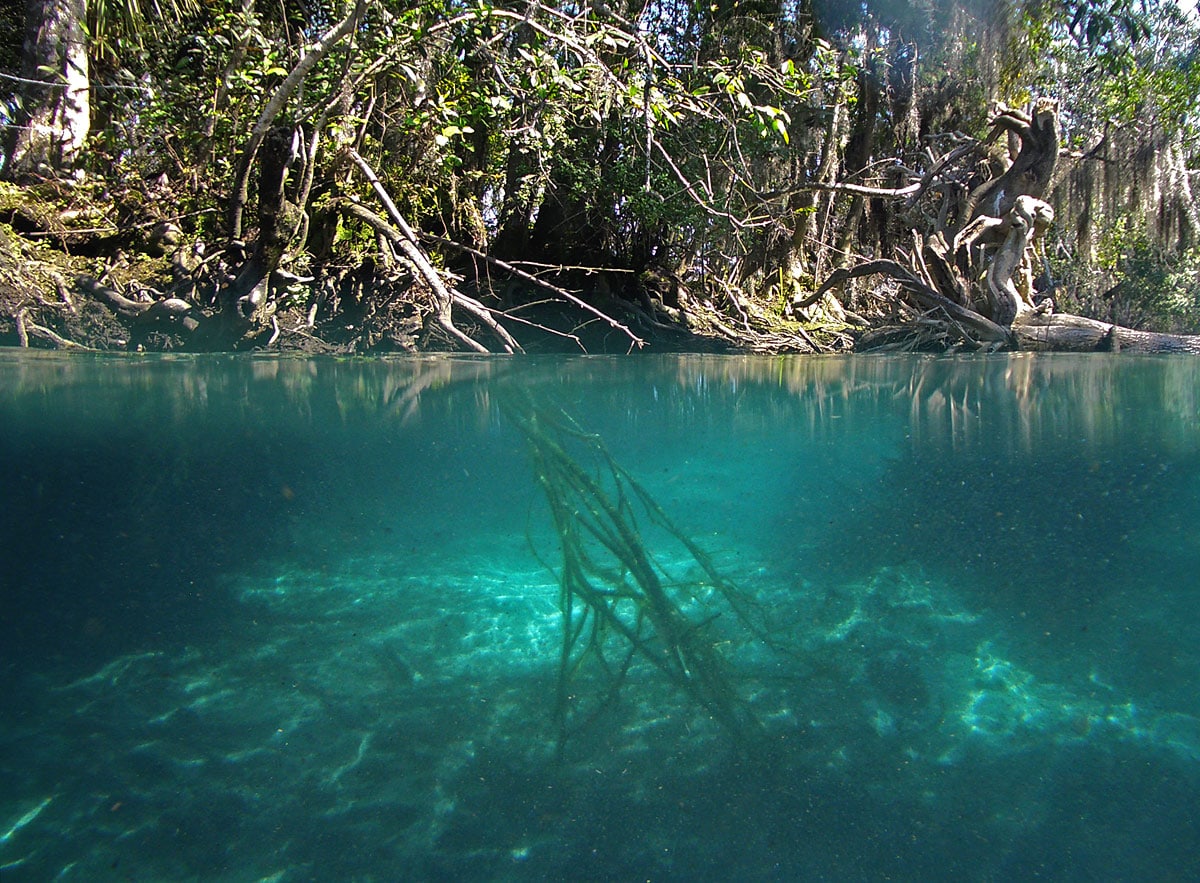World 🢖 Asia 🢖 Indonesia 🢖 West Papua
Sinkholes 🢔 Caves 🢔 Geological wonders 🢔 Categories of wonders
Wonder
Aouk-Kladuk Underground River

© Marc Faverjon, Acheloos Geo Exploring
 In short
In short
The most powerful known underground river in the world is Aouk-Kladuk Underground River in the Bird’s Head Peninsula of New Guinea.
 47.5%
47.5%
GPS coordinates
Length
Depth
Stream
Map of the site
If you see this after your page is loaded completely, leafletJS files are missing.
 In detail
In detail
Bird’s Head Peninsula
The western extension of New Guinea island is Bird’s Head peninsula or if used Dutch toponym – Vogelkop.
Most of this peninsula is covered with pristine rainforest, sparsely populated, and seldom visited by travelers and scientists. Bird’s Head peninsula receives lots of rain – some 6 meters per year. Thus the peninsula has several quite powerful rivers.
In the central part of Bird’s Head peninsula is Ayamaru Plateau – limestone massif where intense karst processes take place. Here nature has created caves, sinkholes, and other interesting karst formations.
The disappearing Aouk River
Rivers in Ayamaru Plateau often disappear under mountain ridges and reappear on the other side. If these rivers are seen even on satellite images through the thick canopy of the rainforest – these should be fairly large streams that should form enormous caves.
One such river is the 250 km long Aouk River, which in lover reaches is called Kladuk or Keladoet. It has several such underground sections, including the giant Aouk Underground River in its middle part. The river collects precipitation from more than 4000 km2 large area and in its lower reaches has a discharge of 300 m3/s – some five times more than, for example, Thames River.
Local people knew about this subterranean river long, long ago. Scientists and researchers of modern times though came much, much later. The first known European in this area was Italian researcher Odoardo Beccari in 1873 – 1875.
The first known European to reach the mighty resurgence of the Kladuk River was the Dutch lieutenant Gustav Ilgen with a team of explorers in 1913 or 1914. He even took images of one of the entrances in the tunnel.
Only in 2016 – 2018 in this area arrived the next explorers – the group of Italian Acheloos Geo Exploring. This research took place under the framework of a project “Call for River” – a quest to find the world’s largest underground rivers.
Description
Civilization has reached this area: there has been built a road over the Aouk-Kladuk Underground River and the first houses appear around it. Nevertheless, this still is a comparatively pristine area with an extensive rainforest.
Aouk River enters the underground through a wide, arch-shaped entrance in the cave – Ilgen Sink. The river here is seemingly calm and lots of floating wood have accrued at the entrance of the cave. Nevertheless, it is too complicated to enter the cave – the stream is strong, there are no shores and flash floods come here frequently. Who knows – maybe inside the cave is a siphon and anyone coming with a boat would die without hope for rescue.
The other end of the cave some 1.5 km to the south is more dramatic. First comes a giant sinkhole – Kladuk Abyss – where the stream of the river opens through a window, roaring far, far below the forest. Then the river slides under the ground again and reappears some 100 – 150 m further as the world’s most powerful spring, roaring and forming huge standing waves.
Well, formally river resurgence is not considered to be a true spring. But it definitely looks like one – a giant stream coming from the underground and bringing some 130 – 180 cubic meters every second. This is some 6 – 10 times more than in the most powerful springs of Florida – some of the best-known and most powerful karst springs in the world.
Aouk-Kladuk Underground River exceeds the size of the world’s largest known cave rivers in Khoun Xe Cave (Laos) and Gebihe system (China) and currently is the largest in the world.
References
Many thanks to Andrea Benassi for providing the information and granting the images to Wondermondo!
- Papua 2017 Aouk Underground River – Acheloos Geo Exploring, Petzl. Accessed in 14 January, 2019
- Andrea Benassi e Ivan Vicenzi, Papua 2017 Aouk Underground River – Acheloos Geo Exploring, cronache ipogee. Accessed in 16 January, 2019
- Il Tiankeng dell’Aouk, Speleologia Casolana. Accessed in 16 January, 2019
- Graham Mullan, News: Exploring Large River Caves in West Papua, Darkness Below. Accessed in 16 January, 2019
 Linked articles
Linked articles

Wonders of Indonesia
Indonesia is a true land of wonders. There are few other countries in the world that can offer a similar array of diverse, unique, and beautiful natural and cultural monuments.

Caves
Every year there are reported exciting discoveries of new caves and discoveries of new qualities such as cave paintings in the ones known before. But there still is a feeling that our knowledge covers just a small part of all these monuments of nature.
Though, those which are known to us, offer a surprising diversity of unusual features and impressive sights.

Springs
Powerful natural freshwater springs belong to the most fascinating monuments of nature. Even more exciting is the diversity of unusual springs – mineral springs, hot springs, submarine springs as well as the unusual black smokers. Especially beautiful are such natural rarities as travertine, silica, or salt terraces created by warm and hot springs and, especially, geysers.
 Recommended books
Recommended books
Caves
Bit by bit, over thousands or even millions of years, water carves and shapes rock into designs only nature could create. Deep in limestone or under a few feet of hardened lava, on an ocean coast or a sandstone cliff, a cave is a mysterious and fascinating place.
Indonesian New Guinea Adventure Guide: WEST PAPUA / IRIAN JAYA
In one of the last untamed places on Earth, Indonesian New Guinea’s snowcapped peaks tower above steaming rainforests, and huge crocodiles stalk in thick mangroves ringing the island. Whether you lounge on the white beaches of Biak or trek around Wamena, Indonesian New Guinea offers the adventure of a lifetime.


